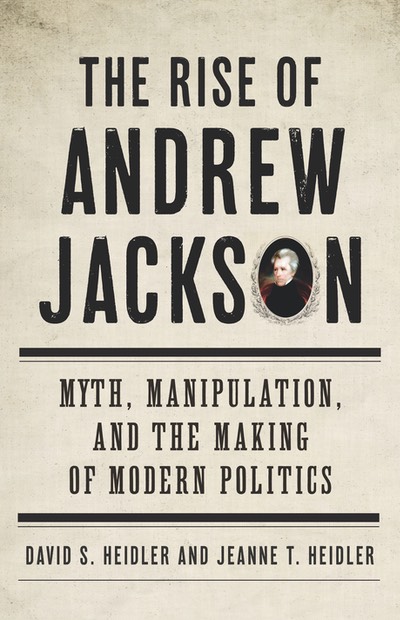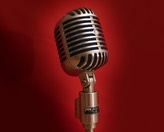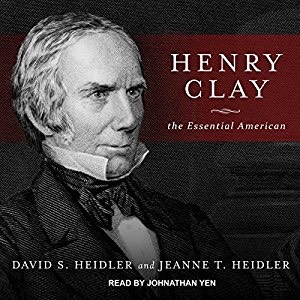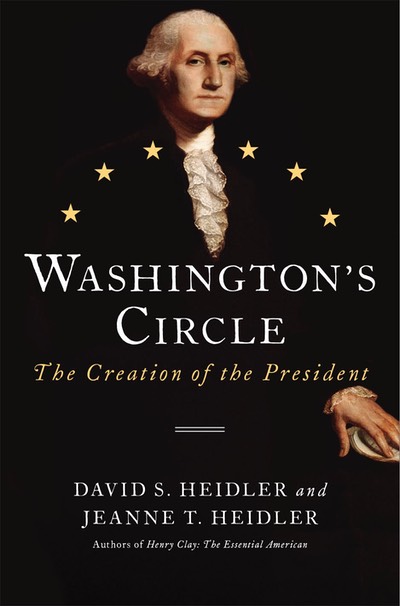The Cautionary Tale of
the Other General Lee
When the Continental Congress in 1775 appointed George Washington commander-in-chief of the ragtag American army outside Boston, his selection did not meet with universal approbation. Rivals for the post abounded, and doubtful members of the Congress seemed to have their misgivings confirmed by Washington’s dismal performance in the opening months of the war.
One of the favorite candidates for Washington’s job was Charles Lee. And because of that, he became a striking example of how failure can come to define a life. Almost always, fate has less to do with it than losers like to think. But a supremely confident man seemingly at the top of his game who falls far and fast never sees it that way. Deep introspection along with endless retrospection is a witch’s brew that always spells trouble, usually in the form of obsession about the past, missed opportunities, and "bad luck.” The result is the horrible habit of recalling everything through the lens of “might-have-beens.” Here is how that happened to Charles Lee.
It’s easy to see why he initially had enthusiastic congressional support for overall command of the American army. When the war broke out in 1775, Charles Lee was the same age as George Washington almost to the day, but his military résumé was far more imposing. He had fought in America during the French and Indian War, but as a regular officer in the British army, a position Washington had coveted during his entire, disappointing career in the Virginia militia.
Lee had received his commission the old fashioned way in Britain. His father, a high-ranking officer, purchased it for him. At the time, Lee had been quite young and was still attending school (also a normal circumstance), but that beginning did not detract from a respectable career as the years went by.
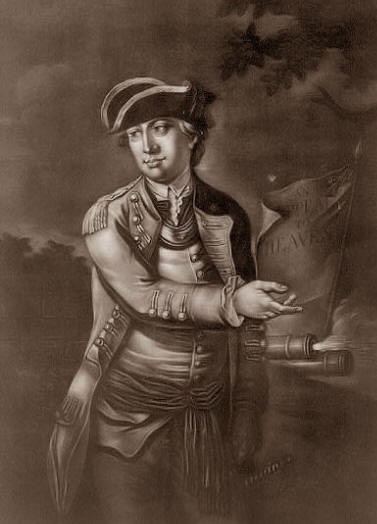
Charles Lee as he saw himself
Consider this impressive record: Lee was in America during the French and Indian War in which he suffered a bad wound at the 1758 assault on Fort Ticonderoga. Later, he fought Spaniards in Portugal. By 1762 he was a colonel, and the Spanish campaign showcased his resourcefulness and audacity. With opportunities scarce after Britain’s victory in 1763, Lee signed on as aide-de-camp to the King of Poland at the rank of major general and saw Russians fighting Turks outside Constantinople. Charles Lee had forgotten more about how to run a professional army than George Washington had ever known.
Lee’s biography for awestruck provincials resembled romantic fiction. While in America he had married the daughter of a Seneca chief and sired twins before departing to bound through Europe with an eye for the ladies and a nose for excitement. Amorous escapades along with a quick temper (the Oneida Indians called Lee “Boiling Water”) got him in such improbable scrapes that his stories seemed incredible, except he had the scars to prove them. An Italian chopped off a couple of Lee’s fingers in a duel that started with swords and ended with pistols. Lee killed the Italian and fled with the authorities in hot pursuit. It was just another day in the life of a man of the world.
It made more than a few men who didn't know Lee very well to imagine his life as full of winks and quips with one minute spent in swordplay against impossible odds and the next at a high-stakes gaming table surrounded by envious men and beautiful women. Indeed, it makes Charles Lee a swashbuckler from central casting, but in truth, it shouldn’t. To his credit, Lee never embarked on a deliberate campaign of image building to portray himself as a lovable rogue and a daring hero. He was capable of admirable self-awareness, as when he pondered whether his uncontrollable temper was caused by “disappointed ambition” or “too high an opinion of my own merit.” He was widely read if unrefined and could turn an apt phrase better than he could turn a girl’s head. A close acquaintance who admired Lee was Lawrence Sterne, the author of the enormously popular Tristram Shandy, Thomas and Martha Jefferson’s favorite novel.
But in truth, Charles Lee wasn’t much to look at, and according to some, he was ugly. Of average height and painfully thin, his most prominent features were an enormous nose and a weak chin. He was careless with his clothes, which were often soiled, and he was unkempt, usually sporting greasy hair and dirty fingernails. These lapses for a time worked to create the impression of an eccentric mastermind free of the conventions of ordinary mortals, and some people judged Charles Lee as something of a military genius. Even admirers, however, had to admit that he was foul-mouthed as often as he was glib and that his manners were more suited to a barracks than a drawing room. His usual companions were not pretty girls at all but unruly dogs — many, many, many unruly dogs.
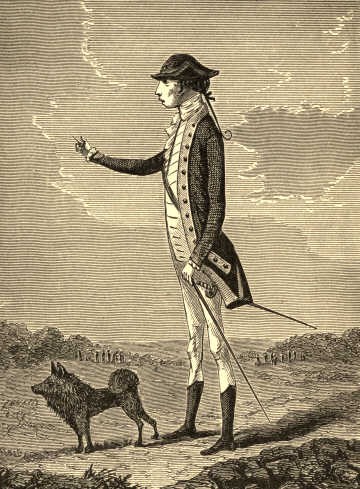
Lee as others saw him
Lee had prospered in the British army because he was talented, knowledgeable, and keenly intelligent. In the cloistered world of the British peacetime military, fellow officers valued a colorful compatriot all the more because he had a string of mistresses — or even better, a passel of unleashed hounds — along with a couple of wounds and a hollow leg.
It might have gone on like that for Charles Lee, but he fell out of political favor by supporting Americans in their quarrels with the crown over colonial policy. He did this because of his contrary nature rather than any principled agreement with American complaints. But it was only part of the reason the government put him on half pay (meaning they removed him from active duty). He soon decamped for North America to assess property in British East Florida he inherited from his wealthy mother.
Lee had friends as well as property in British America. Benjamin Franklin had praised him for a pamphlet he had written years earlier, and Horatio Gates knew him socially from their service when Gates had been a major in the British infantry. Gates had settled in Virginia and helped Lee acquire land there too. Becoming a country squire in America seemed a pleasant diversion, and Lee could count on additional holdings in England and the West Indies to make life easy and comfortable. When the war came, and he announced his determination to help fight it, Americans were further awed by his not just risking everything but his willingness to lose it, as he certainly would, for the patriot cause. Lee showed up in Philadelphia in May 1775 sure that his example, as well as his experience, would land him the premier place in the American military. His moment had seemingly arrived.
Congress selected George Washington, however, and for many of the reasons it did not choose Charles Lee. The foul mouth, crude manners, improbable stories, and rowdy dogs all gave just enough people enough pause to bend them toward Washington. There was also the fact that Washington was a Virginian willing to lead men in Massachusetts, and Lee was a British officer who had been in the country all of fourteen months.
The real question, however, has always been how much Lee resented being passed over. It would seem that the “might-have-been” habit was already working its poison.
Congress did make Lee a major general, matching his rank in the Polish service. Despite the reasons to pass over Lee, more than a few members of Congress muttered that George Washington’s appointment was a mistake, that Lee was the man. He could not have agreed more. John Hancock later took the opportunity to assure Charles Lee of “the high estimation the members of Congress have of your worth and abilities.”
Lee held his tongue. His later insubordination shows that he was confident that by biding his time, his time would come. He had only to be patient while George Washington made a hash of things. Lee saw Washington as a lumbering hulk of a provincial. He thought Washington's hesitating speech and grave manner were the signs of a dim wit and a pompous ass.
The judgment, of course, was most unfair to Washington, but it also revealed Lee to be a churlish ingrate. At the war’s beginning, Washington respected Charles Lee more than any of his other subordinates because of Lee’s impressive credentials and extensive experience. Washington treated Lee with deference, tolerated his transparent insincerity, ignored his occasional aside, and overlooked the signs of a rival plotting against his superior officer with more enthusiasm than against the enemy. Lee’s criticisms of Washington, which he unwisely shared with members of Washington’s staff, came at one of the worst times for the commander-in-chief, for Washington was being humiliated by Sir William Howe's roughshod invasion of New York. Lee got into the habit of ignoring Washington’s instructions and began to assert an independence designed to burnish his image in contrast to Washington’s failures.
That was the situation when the British captured Charles Lee on December 12, 1776, in a New Jersey tavern. The infamous Banastre Tarleton was in on the event and was among those who thought they had hooked a big fish, a big fish indeed. In celebration the British passed around a bottle and included Lee's horse in the party, allowing him to swig away and getting the animal drunk. Despite such comedic overtones and Lee’s obvious carelessness in getting captured, the event had the odd effect of enhancing his reputation for daring while distressing many in the Congress. They thought that America’s best hope had been bagged by the British. Washington was by this time concluding his disastrous retreat from New York. Many thought that Lee should have been made commander-in-chief in the first place, and the British traipsing around at will seemed to prove it.
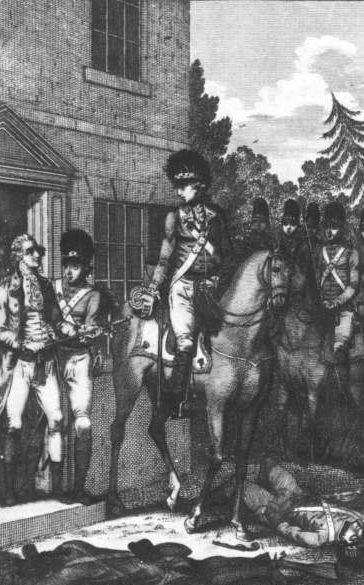
Lee’s capture is here depicted as much more decorous than it really was. He was nabbed at night and, according to some accounts, with his pants down, the result of an assignation that made him less watchful than he should have been. Almost everybody chararacterized the event as a spot of bad luck, a twist of fate — something that could’ve happened to anyone. But it was Lee’s fault, which made it another of the multiplying “might-have-beens” beginning to define his life.
Lee was held in New York City without parole or chance of exchange because the British treated him as a deserter rather than a prisoner of war. The designation alarmed Lee, and he dealt with it by making his captors his hosts. In March 1777, he drafted a plan for how best to carry out attacks against American forces, something his captors-now-hosts were grateful for. The discovery of this document eighty years later led historians of the mid-nineteenth century to conclude that Lee had been an undiscovered traitor. That debate goes on, but clearly, Lee’s devotion to the cause of American independence had all but evaporated by the time he was exchanged and returned to service in the Continental Army.
Nobody suspected this at the time, and Washington appointed Lee to command the attack on the British as they evacuated Philadelphia. And it was in this role at the Battle of Monmouth on June 28, 1778, that Lee’s conduct essentially ended his career in the American army. When he retreated without warning, his confrontation with an angry Washington began a chain of events that included a court-martial in which Washington’s intensely loyal aides — including Alexander Hamilton — provided devastating testimony against Lee.
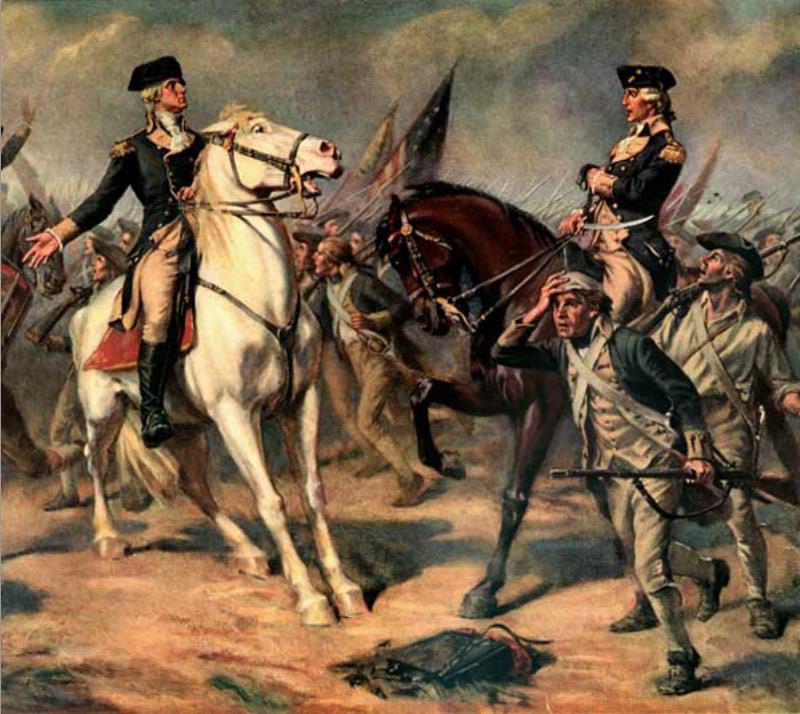
At Monmouth during the battle, Washington demanded an explanation from Lee about his unnecessary retreat. He then dissmissed Lee from the field and took pesonal command to save the day. It was one of the rare times during the war that Washington publicly lost his temper, but everyone present at the event said his anger was more than justified.
When the court found Lee guilty of disrespect and insubordination, he commenced an increasingly unhinged campaign for vindication. He wrote disparaging letters about Washington to Congress and sent Washington himself messages full of taunts and bullying. Lee sneered that he wanted to show “to America the sufficiency of her respective servants,” and he hoped “the temporary power of [your] office, and the tinsel dignity attending it, will not be able, by all the mists they can raise, to ofuscate [sic] the bright rays of truth.”
With such tirades, Lee at last exhausted the patience of the dwindling number of congressmen who still admired him. Congress approved the finding of the court and suspended him from the service for a year, effectively ending his role as a credible public figure and a tenable officer. In failing health, he railed that George Washington was a “puffed up charlatan . . . extremely prodigal of other men's blood and a great œconomist of his own.” He spent his time sponging off charitable friends and fighting duels to reclaim his reputation. One of Washington’s aides wounded him in their fight.
Mostly, though, Lee simply wasted away. He was in Philadelphia in October 1782, a year after the “charlatan” had beaten the British at Yorktown when a serious fever forced Lee to bed. On the morning of October 2 his dogs snuffled the bedclothes and licked his face to wake him, but he would not stir. The man for whom life had become a cloud of sad might-have-been memories was dead.
